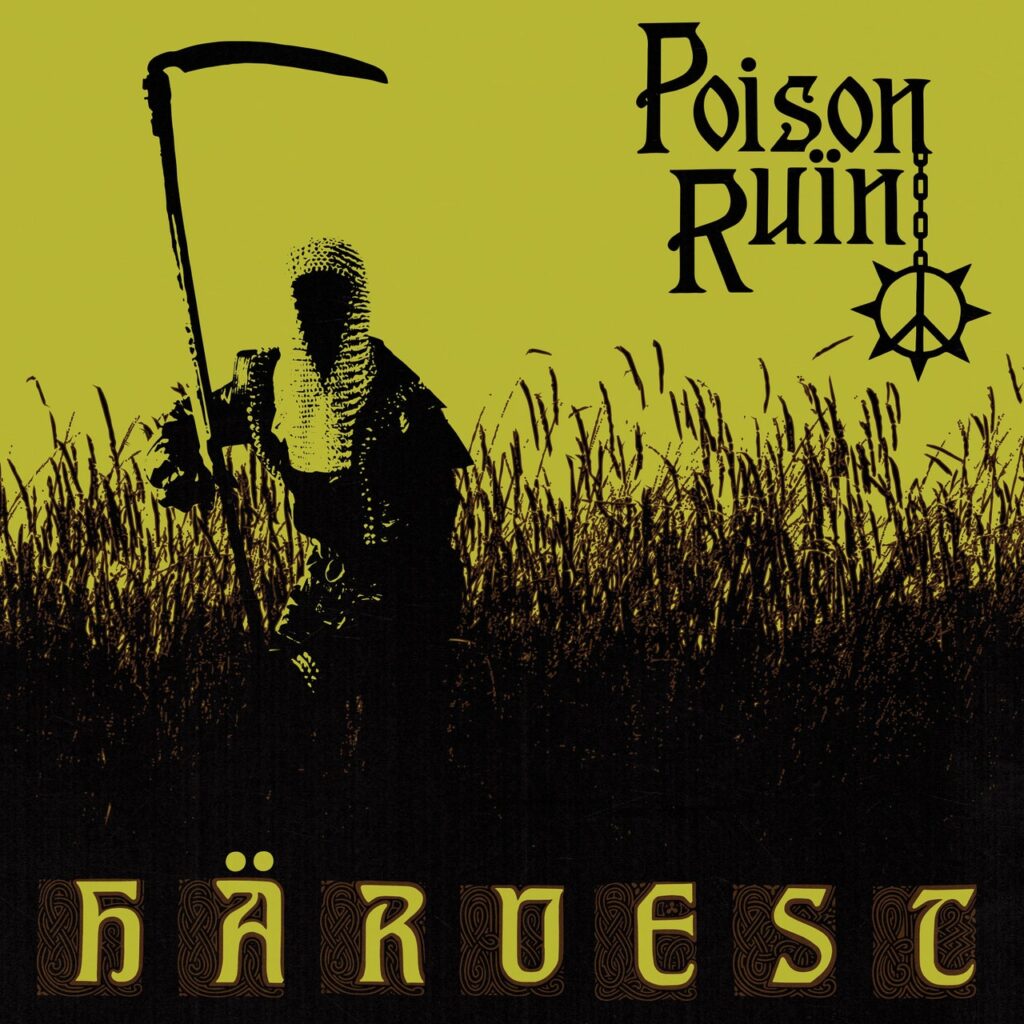Rage and oppression are historical constants. Poison Ruïn’s Härvest marries feudal revolt with contemporary punk wrath, holding up a medieval mirror to the genre’s familiar symbols of disenfranchisement. The Philadelphia band trades the defiant cityscape of Bad Brains’ “Banned in D.C.” or the technological hellscape of the Germs’ “Media Blitz” for fields, labyrinths, and tombs, yeeting contemporary sounds like a Molotov cocktail through centuries past.
The record is bracing and incendiary; it’s also an escape. It promises transport, whether to a bygone time or a different emotional plane. Opener “Pinnacle of Ecstasy” enters as if on a fog, epic synth ceding to driving power chords as vocalist Mac Kennedy growls, “Rot, face down in the gutter/Covered in flies.” Before long, the guitars grow frenzied, the riffs dizzying, and the song’s protagonist, slithering in the shadows, has found ecstasy in their lowly station.
“Härvest,” the album’s highlight, follows a similar path. Building from its slow-burn cinematic keyboard opener, it segues into a propulsive punk anthem, part Legend of Zelda and part Ramones. Making an open call to revolt, Kennedy chants, “You sowed your seed/Despite the salt/Some glutton’s greed/You played your part,” adding ominously, “You play your part until we give the signal.”
Despite otherworldly embellishments, from Neverending Story-style interlude “Resurrection I” to the sword-sharpening sounds that open “Bastards Dance,” the album never crosses fully into the territory of camp. Poison Ruïn flirt knowingly with this line, winking occasionally from their seat next to the guillotine, but this record forgoes the cheese of adjacent knight- or wizard-core acts like Iced Earth or Grave Digger. Instead, Poison Ruïn employ symbols that point to contemporary parallels, real and meaningful disparities in wealth and class that only exist because we permit them. “Isn’t this our harvest?” Kennedy asks on the titular song. “Isn’t this our feast to share?/Wiser ones are asking themselves,/‘Who’s swinging the scythe?’”
At its most powerful, Härvest foments, whether the fruit of their harvest is class rage or despair. From the thinly veiled remove of a fantasy, the listener is impelled to reconsider their relationship to labor and agency, whether swinging a scythe or working hourly at a grocery store. The momentum slows on “Augur Die,” a serviceably breakneck song that could be the work of any hardcore band, but by “Bastards Dance,” we’re either wheeling around the pit with reckless abandon or hopping into the saddle with a lit torch.
The most effective protest songs juxtapose the extant with the possible, the unacceptable with the hopeful. Like a horseman’s boot to the face, Poison Ruïn’s album is a reminder of the violence we withstand and the violence we can mete out in service of something greater. Whether revolution starts in a rehearsal space or a pasture, Härvest attests that it’s delirious and hot-blooded, a wellspring of power rising from the gutter.
All products featured on Pitchfork are independently selected by our editors. However, when you buy something through our retail links, we may earn an affiliate commission.

